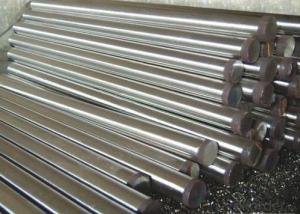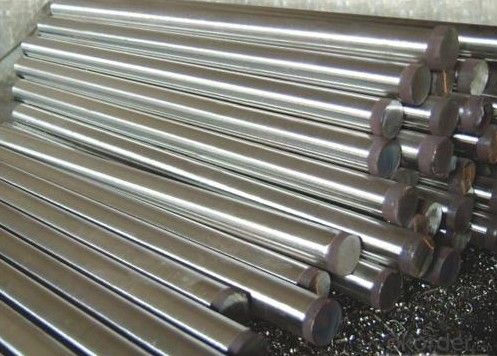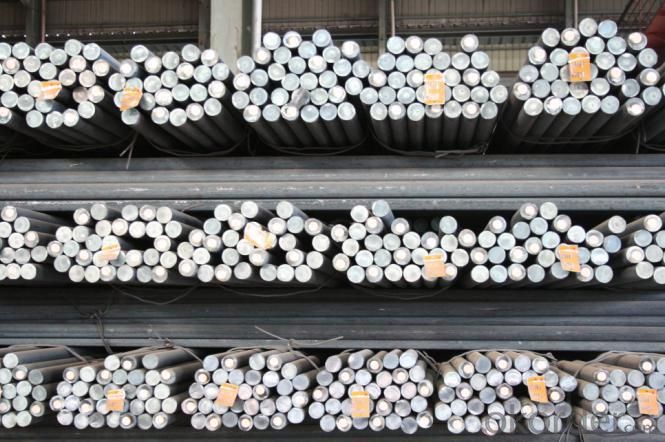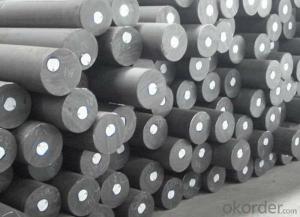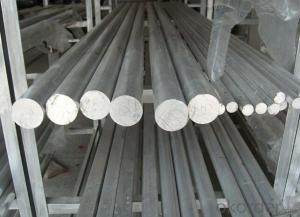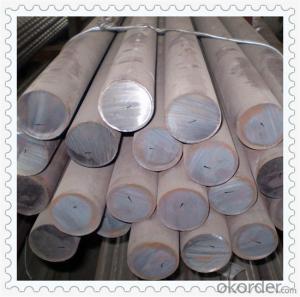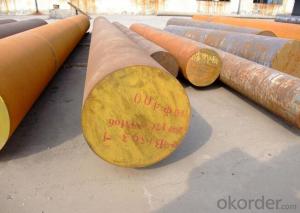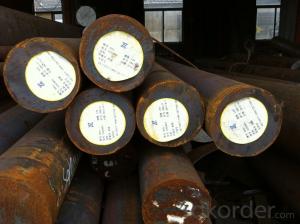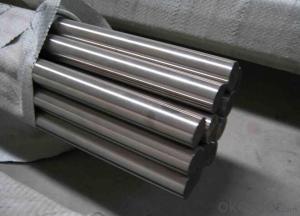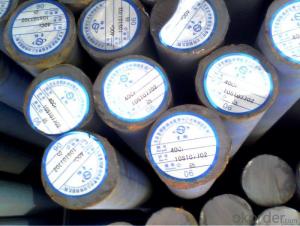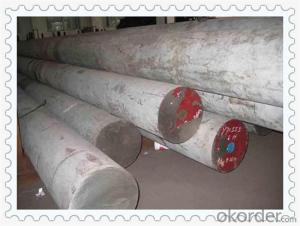Special Steel Alloy Steel Round Bar 41Cr4
- Loading Port:
- China main port
- Payment Terms:
- TT OR LC
- Min Order Qty:
- 30 m.t.
- Supply Capability:
- 10000 m.t./month
OKorder Service Pledge
OKorder Financial Service
You Might Also Like
Specification
Product Information
1 Grade Comparison:
GB | AISI | JIS | DIN |
40Cr | AISI/SAE5140 | SCr440 | 41Cr4 |
2 Chemical Composition:
C | Si | Mn | P | S | Cr | Ni | Cu |
0.38-0.43 | 0.15-0.35 | 0.60-0.90 | ≤0.03 | ≤0.03 | 0.3-0.16 | ≤0.25 | ≤0.03 |
3 Brief Introduction:
Dimension | 13-350mm |
Length | 2-13m or as per your request |
Delivery condition | Hot rolled |
Heat Treatment | Normalizing, Annealing, Quenching |
Packing | Standard seaworthy packing or according to your requirements |
4 Mechanical Property:
Yield Strength (MPa) | ≥785 |
Tensile Strength (MPa) | ≥980 |
Elongation (%) | ≥9 |
Hardness (HB) | ≤207 |
Reduction in Area (%) | ≥45 |
AKV (J) | ≥47 |
Product Show
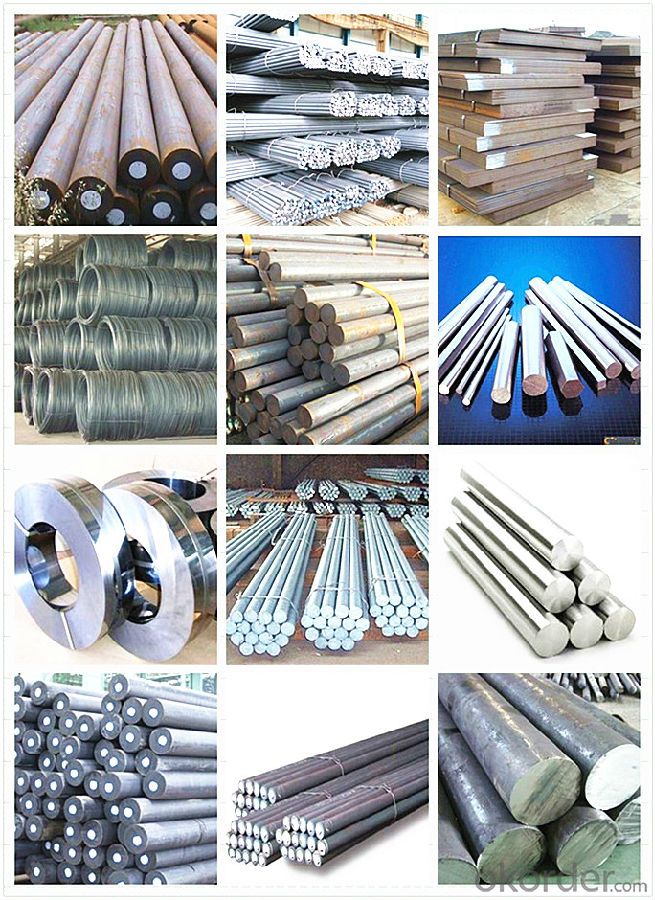
Workshop Show
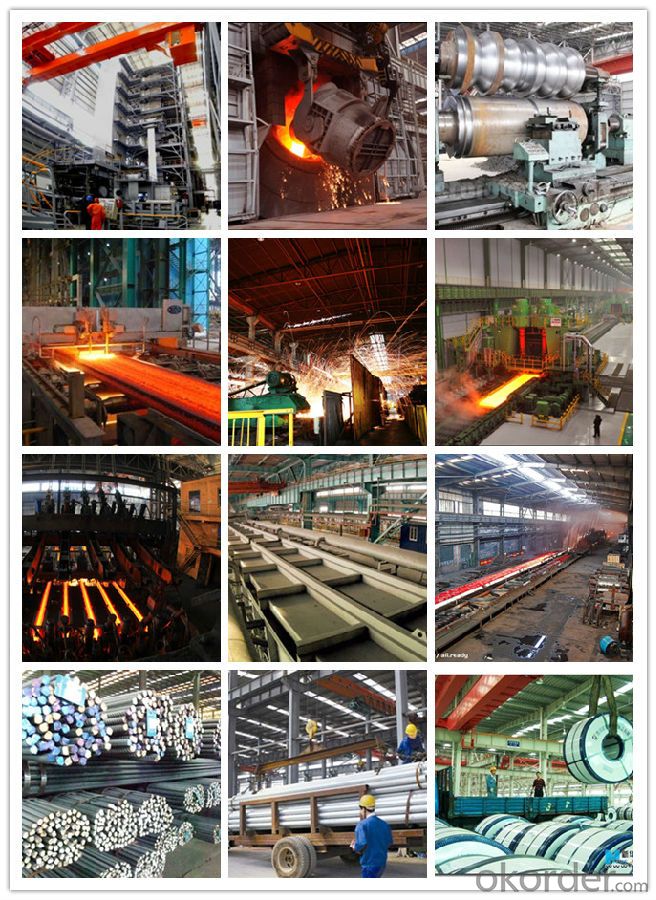
Shipping
1. FedEx/DHL/UPS/TNT for samples, Door-to-Door;
2. By Air or by Sea for batch goods, for FCL; Airport/ Port receiving;
3. Customers specifying freight forwarders or negotiable shipping methods!
Delivery Time: 3-7 days for samples; 5-25 days for batch goods.
Payment Terms
1.Payment: T/T, L/C, Western Union, MoneyGram,PayPal; 30% deposits; 70% balance before delivery.
2.MOQ: 1pcs
3.Warranty : 3 years
4.Package Informations: 1) EXPORT, In 20 feet (GW 25 ton) or 40 feet Container (GW 25 ton)
2)as customer's requirement
Why choose us?
(1) The leading exporter in China special steel industry.
(2) Large stocks for various sizes, fast delivery date.
(3) Good business relationship with China famous factories.
(4) More than 7 years steel exporting experience.
(5) Good after-sales service guarantee.
- Q: Can special steel be used in the production of knives and blades?
- Yes, special steel can indeed be used in the production of knives and blades. Special steels, such as stainless steel or high-carbon steel, possess properties like corrosion resistance, hardness, and toughness that make them ideal for manufacturing durable and high-performance knives and blades. These steels are often chosen for their ability to retain sharpness, withstand heavy use, and resist rust, ensuring the longevity and reliability of the knives and blades.
- Q: How does special steel contribute to the waste management industry?
- Special steel contributes to the waste management industry in various ways. Its exceptional strength, durability, and resistance to corrosion make it ideal for manufacturing equipment used in waste management processes. Special steel is extensively used in the construction of waste sorting systems, recycling machinery, and waste containers, ensuring their longevity and reliability. Additionally, special steel can be recycled itself, reducing the environmental impact of waste management operations and promoting sustainability in the industry.
- Q: How is special steel used in the production of turbine blades?
- Special steel is used in the production of turbine blades due to its exceptional strength, heat resistance, and corrosion resistance properties. This high-quality steel allows turbine blades to withstand the extreme conditions within a turbine, including high temperatures and rotational speeds. Additionally, the unique composition of special steel enables the blades to maintain their shape and structural integrity, ensuring optimal performance and longevity in power generation applications.
- Q: What are the applications of special steel in the nuclear industry?
- Special steel has various applications in the nuclear industry due to its unique properties. It is commonly used in the construction of nuclear reactors, fuel assemblies, and containment vessels. Special steel's high strength, corrosion resistance, and ability to withstand high temperatures make it ideal for these applications, ensuring the safety and efficiency of nuclear power plants.
- Q: How is structural steel used in building construction?
- Structural steel is extensively used in building construction due to its high strength and versatility. It serves as the primary framework for buildings, providing support and stability. The steel beams and columns are used to create the skeleton of the structure, spanning large distances and allowing for open floor plans. Additionally, steel is used for various other elements such as stairs, handrails, and roof trusses. Its durability, fire resistance, and ability to withstand extreme weather conditions make it an ideal material for constructing high-rise buildings, industrial facilities, and bridges.
- Q: How does spring steel maintain its elasticity?
- Spring steel maintains its elasticity due to its unique composition and heat treatment process. It is made from a high carbon steel alloy, which provides it with exceptional strength and flexibility. Additionally, spring steel undergoes a specific heat treatment called quenching and tempering. During this process, the steel is heated to a high temperature and then rapidly cooled, which creates a hardened structure. This hardened structure allows spring steel to withstand repeated bending and twisting without permanently deforming. Overall, the combination of high carbon content and heat treatment enables spring steel to maintain its elasticity and resilience.
- Q: What are the properties of nitriding steel?
- Nitriding steel is a specialized process used to enhance the surface hardness and wear resistance of steel. The properties of nitriding steel include improved surface hardness, increased resistance to wear, improved fatigue strength, enhanced corrosion resistance, and reduced coefficient of friction. This process forms a hard nitride layer on the surface of the steel, making it suitable for applications in industries such as automotive, aerospace, and manufacturing, where durability and performance are crucial.
- Q: How is special steel used in the food processing industry?
- Special steel is used in the food processing industry for various applications such as manufacturing equipment and machinery, utensils, and containers. Its unique properties, including corrosion resistance, durability, and hygiene, make it suitable for ensuring food safety and maintaining high standards in processing and handling.
- Q: What are the different methods of improving the impact toughness of special steel?
- There are several methods that can be employed to enhance the impact toughness of special steel. Here are a few commonly used techniques: 1. Heat Treatment: One of the most effective methods is heat treatment, which involves subjecting the steel to specific heating and cooling processes. For instance, quenching and tempering can significantly increase the impact toughness of steel. Quenching involves rapidly cooling the heated steel in a liquid medium such as oil or water, while tempering involves reheating the quenched steel to a specific temperature and then cooling it slowly. This process helps to refine the microstructure of the steel, making it more resistant to fracture and improving its impact toughness. 2. Alloying: Another method is alloying, which involves adding specific elements to the steel composition. Alloying elements such as nickel, chromium, and molybdenum can enhance the toughness of steel by modifying its microstructure and improving its resistance to impact. These alloying elements help in reducing the formation of brittle phases and improving the ductility of the steel. 3. Grain Refinement: The grain size of steel plays a crucial role in determining its impact toughness. By refining the grain size, the steel can exhibit improved toughness. This can be achieved through methods like controlled rolling or severe plastic deformation techniques. These techniques help in breaking down the large grains and promoting the formation of smaller, more uniform grains, resulting in enhanced toughness. 4. Shot Peening: Shot peening is a surface treatment technique that involves bombarding the steel surface with small metallic or ceramic shots. This process induces compressive stress on the surface, which helps to improve the impact toughness by reducing the likelihood of crack propagation. 5. Welding Techniques: In the case of welding special steel, specific welding techniques can be employed to enhance its impact toughness. Preheating the steel before welding and controlling the welding parameters such as heat input and cooling rate can help in reducing the formation of brittle phases and improving the toughness of the welded joint. It is important to note that the selection of the appropriate method for improving the impact toughness of special steel depends on various factors such as the desired level of toughness, the specific steel composition, and the intended application of the steel. Therefore, a comprehensive understanding of the steel's properties and the specific requirements is crucial in determining the most suitable method for enhancing its impact toughness.
- Q: What are the casting methods for special steel?
- There are several casting methods used for special steel, including investment casting, sand casting, and centrifugal casting. Investment casting involves creating a wax pattern of the desired shape, which is then coated in ceramic and melted away, leaving a cavity that is filled with molten steel. Sand casting involves making a mold from a mixture of sand and a binder, and pouring molten steel into the mold cavity. Centrifugal casting utilizes centrifugal force to distribute molten steel into a mold, resulting in a more uniform casting with fewer defects.
Send your message to us
Special Steel Alloy Steel Round Bar 41Cr4
- Loading Port:
- China main port
- Payment Terms:
- TT OR LC
- Min Order Qty:
- 30 m.t.
- Supply Capability:
- 10000 m.t./month
OKorder Service Pledge
OKorder Financial Service
Similar products
Hot products
Hot Searches
Related keywords
